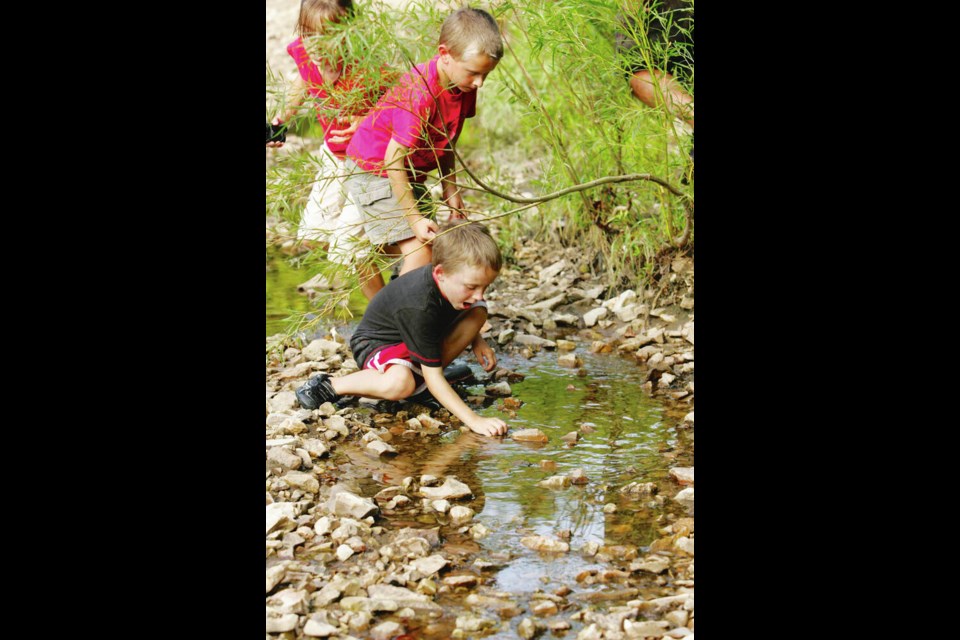There is an apocryphal story of a mother taking her young daughter out into the backyard. The child looks up from her iPad and says: “Where are we?” Her mother replies: “It’s called outside.”
The point is obvious: We have become so screen-oriented that we — and especially our children — have lost touch with the outdoors, with nature.
There is growing concern that this is bad for their health, and a reciprocal concern that it is bad for nature, too. After all, if they have had no contact with nature, why would they cherish, respect and protect nature?
So what if you had a childcare program that improved the physical, cognitive and social-emotional development of children, increased their connections to nature and place, and had a beneficial effect throughout their lives? Wouldn’t you want it to be made available for your kids and grandkids, and indeed for every child?
That program is nature-based outdoor childcare, and it was the focus of a recent one-day Summit at Royal Roads University, organized by the B.C. Nature-based Childcare Advisory Committee. “The evidence of the benefits of outdoor childcare and education is clear,” said Dr. Enid Elliot, an instructor in early learning at Camosun College and one of the summit organizers.
That evidence includes studies in a number of countries that have shown benefits such as increased fitness, improved motor skills, improved mental and social wellbeing, more complex and imaginative play, increased environmental knowledge related to place, and connections to nature that persist into adulthood as pro-environmental attitudes.
Moreover, even though many assume outdoor childcare is less safe, experience shows that is not the case. On the contrary, as long as proper safety and risk-mitigation strategies are in place, children develop awareness of personal boundaries for safe activity while developing “communities of safety.”
In addition, being outdoors means lower rates of disease transmission, including COVID-19. As Elliot concluded: “In fact there is a risk to not allowing children to be outside, to not be connected to the land.”
But the problem is that this form of childcare is not licensed in B.C. “Right now in B.C.,” explained Dr. Mariana Brussoni, a professor in the Faculty of Medicine at UBC and director of the Human Early Learning Project, “childcare can only get licensed if it is attached to a building. That means that operators … must still find and license a facility, even if they never set foot in it. Or they run an unlicensed childcare centre, with no regulatory oversight.”
As a result, the program — if licensed — is more expensive to run than it should be, which means it is not accessible to low-income families. If it is not licensed, then it cannot access wage-enhancement funding from the province and is not eligible for the new $10-a-day childcare support funding. Either way, the children, families and staff lose out.
Outdoor childcare is an efficient way to expand childcare spaces, costing less per space, so society as a whole loses out when it is not widely and equitably available. Which is why the conference organizers and their supporters are pushing to have outdoor childcare licensed in B.C.
The good news is that just to the south, the state of Washington has licensed outdoor, nature-based childcare, meaning B.C. can learn from them. Their program was described to the group at some length by two key members of the Washington State Department of Children, Youth, and Families.
They emphasised that licensing basically follows the same rules as regular childcare, but with additional training for the inspectors on specific additional rules for outdoor nature-based care, which they described in some detail.
An added benefit that is emphasized by both the B.C. committee and the Washington state department is the chance to connect with and learn from local Indigenous people about their history and their connection to the land.
A new B.C.-based program, Learning Outside Together, developed by the Early Childhood Educators of B.C. and the B.C. Aboriginal Child Care Society, provides a useful new way to do this.
To learn more, or to help ensure outdoor, nature-based childcare is available to all, visit outsideplay.ca/#/summit or the Facebook page “Spreading Our Branches”.
Dr. Trevor Hancock is a retired professor and senior scholar at the University of Victoria’s School of Public Health and Social Policy



